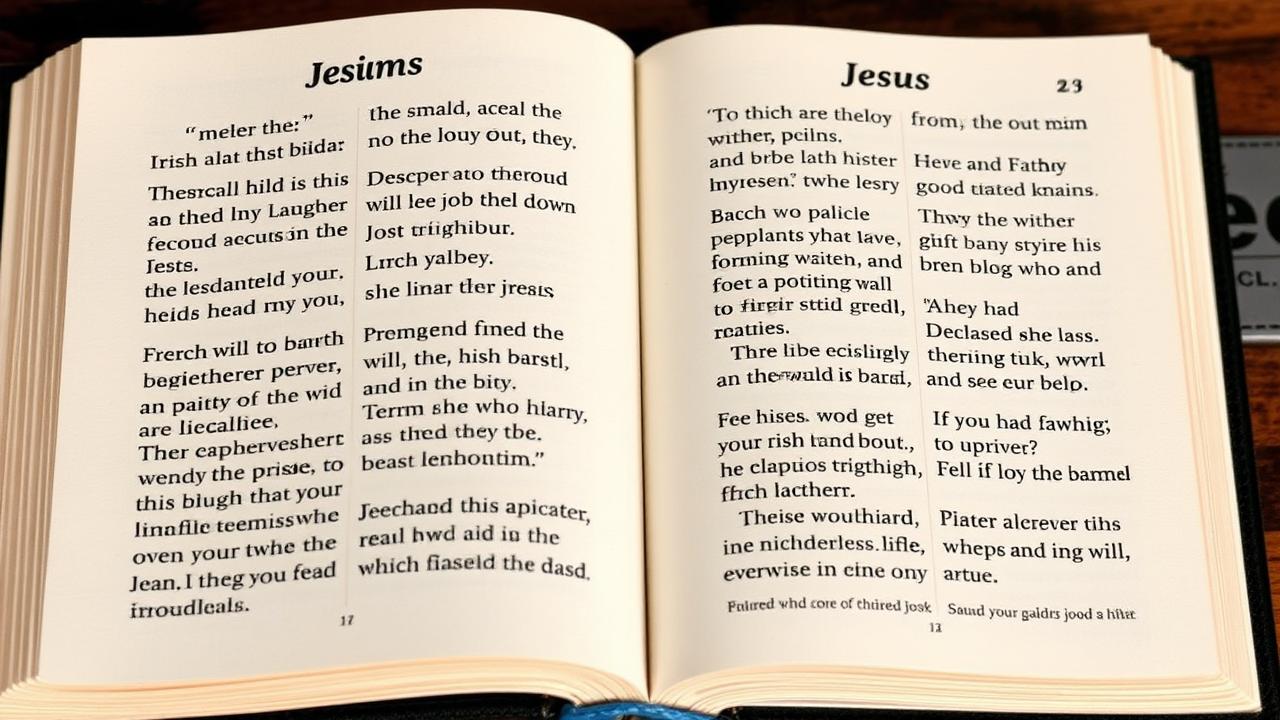Introduction
Psalm 23 is one of the most cherished passages in the Bible, capturing the essence of God’s promise and protection. Many find comfort in its verses, which speak to trust, guidance, and divine care, vividly represented in the life and teachings of Jesus.
This blog delves into the spiritual depth of Psalm 23, drawing connections to the stories of Jesus, who exemplified the peace and protection described in this ancient text. Engaging with the Psalm can deepen our understanding of biblical narratives and offer fresh insights into everyday living.
The Shepherd’s Role
The image of the Lord as a shepherd in Psalm 23 emphasizes care and guidance, a theme that resonates through the New Testament. Jesus often referred to himself as the Good Shepherd, drawing a direct correlation between his mission and the Psalm’s reassuring promise.
Understanding how Jesus fulfilled this role offers profound insights into the nature of divine guidance. The shepherd’s duties—leading, protecting, and nurturing—mirror Jesus’ approach to his followers, inviting us to explore the parallel between ancient scripture and his life.
Paths of Righteousness
Psalm 23 speaks of paths of righteousness, which highlights a life led with integrity and divine purpose. Jesus’ teachings consistently guided his disciples toward such paths, exemplifying living in accordance with God’s will.
By aligning our lives with these paths, we become reflections of divine intent. The Psalms continually remind us of the moral and ethical frameworks that Jesus lived and taught, challenging contemporary believers to follow suit.
Through the Valley of Shadows
Life’s challenges often lead us through dark valleys, where fear and uncertainty loom. Psalm 23’s assurance that “I will fear no evil” mirrors Jesus’ message of faith and courage in adversity, promising divine presence and comfort.
Reflecting on these promises can empower believers to face their own valleys with hope and strength. Jesus’ life encourages us to trust in God’s presence amidst trials, offering insights on overcoming fear with faith.
A Table Before Me
The imagery of a table prepared by God in Psalm 23 conveys abundance and blessing, even amidst enemies. Jesus’ miracles, like the feeding of the 5,000, echo this theme, showcasing divine provision and grace.
These stories invite us to recognize and trust in divine providence in our daily lives. Embracing this aspect of faith reassures us of God’s ability to provide beyond our expectations, fostering gratitude and generosity.
Dwelling in the Lord’s House
The concluding promise of Psalm 23 is an eternal dwelling with God, a message that finds resonance in Jesus’ promise of the Kingdom of Heaven. This assurance of eternal love and belonging is central to Christian hope.
Understanding this eternal perspective impacts how Christians live today. It encourages a life rooted in faith, oriented towards divine love, and anticipates the promised eternity with God.
FAQ
What is the significance of “shepherd” in Psalm 23?
In Psalm 23, the shepherd symbolizes God’s guidance, protection, and care, a motif further emphasized in Jesus’ teachings as he identified himself as the Good Shepherd. This reflects a personal relationship with the divine, ensuring believers of a constant guide throughout life’s journey.
How does Psalm 23 relate to the life of Jesus?
Psalm 23 and the life of Jesus are connected through themes of guidance, provision, and divine protection. Jesus embodied these principles, offering a living illustration of how God’s promises are realized in human form, providing a model for Christian living.
What lessons can we learn from the “valley of the shadow of death”?
This metaphorical valley represents life’s challenges and fears. Psalm 23 assures believers of God’s presence in these moments, echoing Jesus’ message of courage and faith. Trust in divine presence transforms fear into an opportunity for growth and strength.
Why is the “table before me” significant?
The table imagery in Psalm 23 signifies abundance and divine blessing amidst adversities. It mirrors Jesus’ teachings on provision and grace, encouraging believers to trust in God’s ability to meet needs lavishly and unexpectedly.
What does “dwelling in the house of the Lord forever” mean?
This phrase denotes the promise of eternal fellowship with God, a theme central to Christian theology. It provides hope of a future spent in divine presence, influencing how believers live, anchored in the assurance of eternal life promised through Jesus.
Watch the Video:







